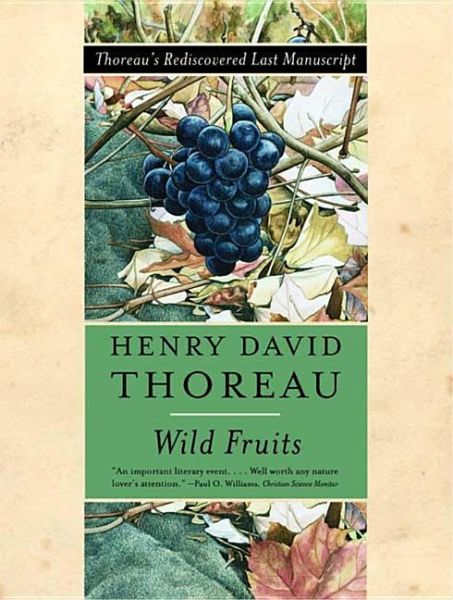
Wild Fruits
Thoreau's Rediscovered Last Manuscript
Herausgeber: Dean, Bradley P / Illustrator: Rorer, Abigail
Versandkostenfrei!
Versandfertig in 2-4 Wochen
22,99 €
inkl. MwSt.

PAYBACK Punkte
11 °P sammeln!
The final harvest of our great nature writer's last years, Wild Fruits presents Thoreau's distinctly American gospel-a sacramental vision of nature in which "the tension between Thoreau the naturalist and Thoreau the missionary for nature's wonders invigorates nearly every page" (Time). In transcribing the 150-year-old manuscript's cryptic handwriting and complex notations, Thoreau specialist Bradley Dean has performed a "heroic feat of decipherment" (Booklist) to bring this great work to light. Readers will discover "passages that reach for the transcendentalist ideal of writing new scripture...
The final harvest of our great nature writer's last years, Wild Fruits presents Thoreau's distinctly American gospel-a sacramental vision of nature in which "the tension between Thoreau the naturalist and Thoreau the missionary for nature's wonders invigorates nearly every page" (Time). In transcribing the 150-year-old manuscript's cryptic handwriting and complex notations, Thoreau specialist Bradley Dean has performed a "heroic feat of decipherment" (Booklist) to bring this great work to light. Readers will discover "passages that reach for the transcendentalist ideal of writing new scriptures, yet grounding this Bible in a vision of practical ecology" (Boston). Beautifully illustrated throughout with line drawings of the natural life Thoreau considers on his walks, Wild Fruits is "well worth any nature lover's attention" (Christian Science Monitor).


